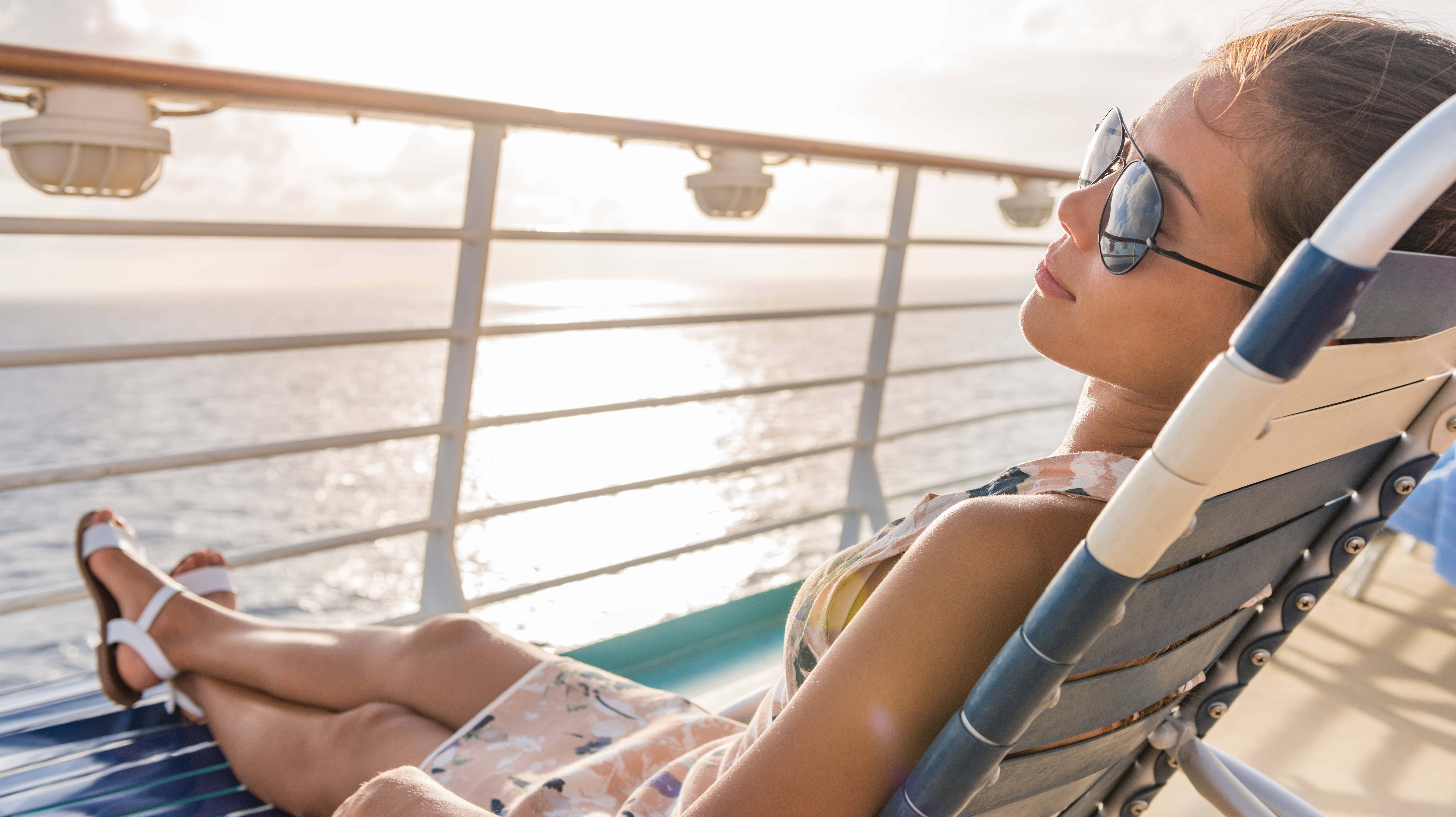
When planning your cruise, you’ll likely be dreaming of fun-filled days in beautiful locations, endless onboard activities, and the opportunity to kick back and relax while your vacation travels with you. To enjoy all this to the fullest, you’re going to want to ensure you’re getting some well-deserved sleep. Unfortunately for some, falling and/or staying asleep can prove difficult while on a cruise.
Whether it’s the change in weather, the bright lights, or the motion of the ship, there’s a whole host of reasons you might not sleep as well as you do at home. If you’re not getting sleep, it’s going to affect your mood and eventually your vacation.
So, to help your dreams set sail, we’ve put together the 7 best tips to utilize on your next cruise. Plus, if you find yourself needing to catch a flight before boarding your ship, we’ve a full article on helpful plane sleep tips too.
1. Pick the right cabin location
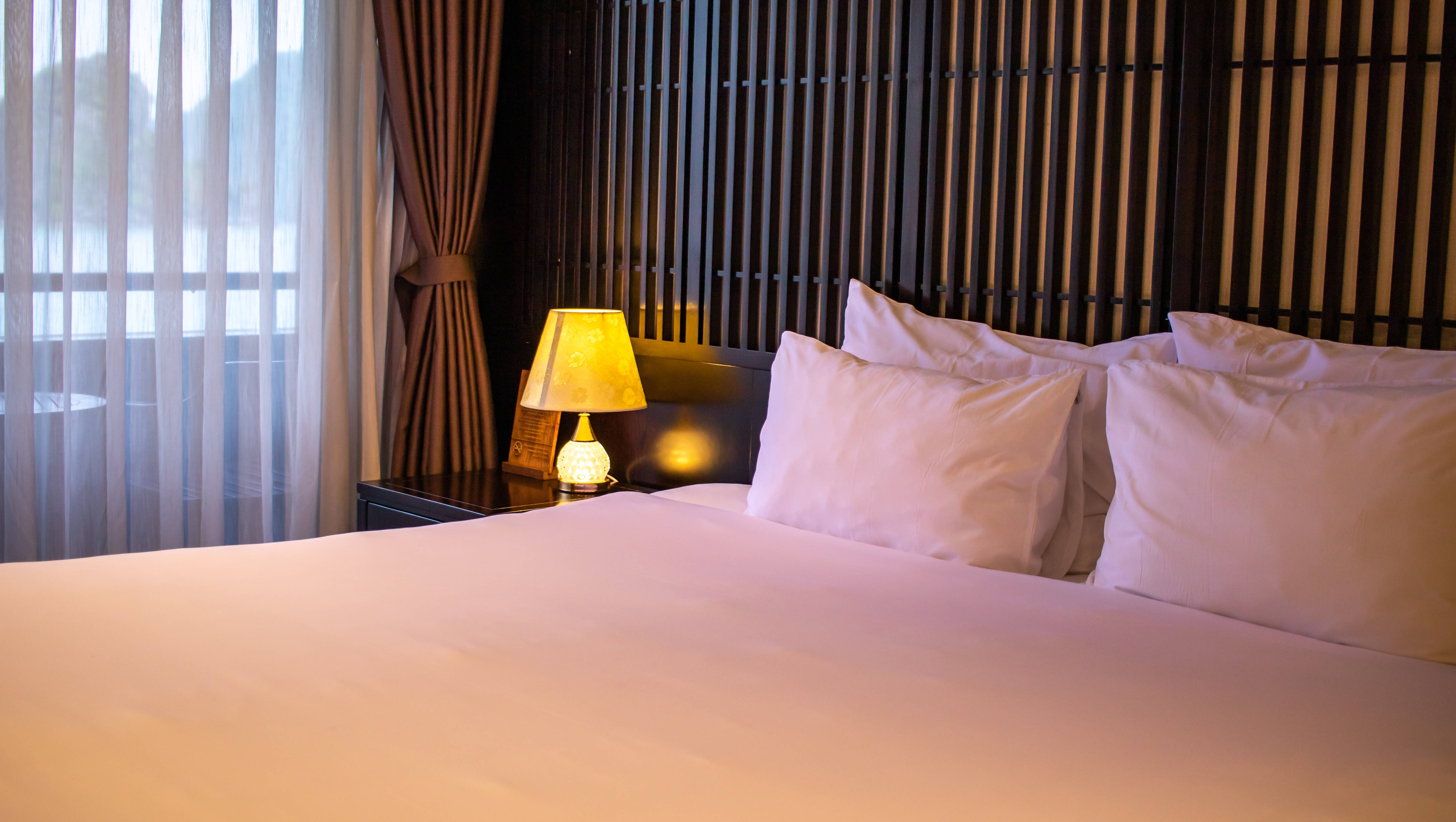
When it comes to picking the right cabin location to suit your needs, there’s a lot to consider. While you might be eager to choose a room closer to the action or fancy having a balcony, preferences like these will ultimately have a knock-on effect on how you sleep. Being closer to the action means less walking, but a much higher chance of noise. A balcony means fresh air, but more light beaming into your room.
If you’re easily disturbed by outside influences, you’ll want to prioritize the best chance at sleep when deciding your cabin location. If sea sickness is an issue for you, aim for a cabin close to the center of the ship and lower down. The more centered you are, the less motion you’ll feel. Cruise line Royal Caribbean suggests a balcony will also help as it “enables you to consistently focus on the horizon line, which tends to keep what you see in sync with the ship’s movement.” But, as mentioned before, balconies mean more light.
If it’s noise that bothers you, then stay away from the busy entertainment areas and stairwells if you’re looking for peace and quiet. Equally, the pool decks can be noisy overhead, so beneath low foot traffic areas is the best choice. Luckily, cruise line companies tend to have deck plans to view online, meaning you can pick ahead of time.
2. Listen to white noise
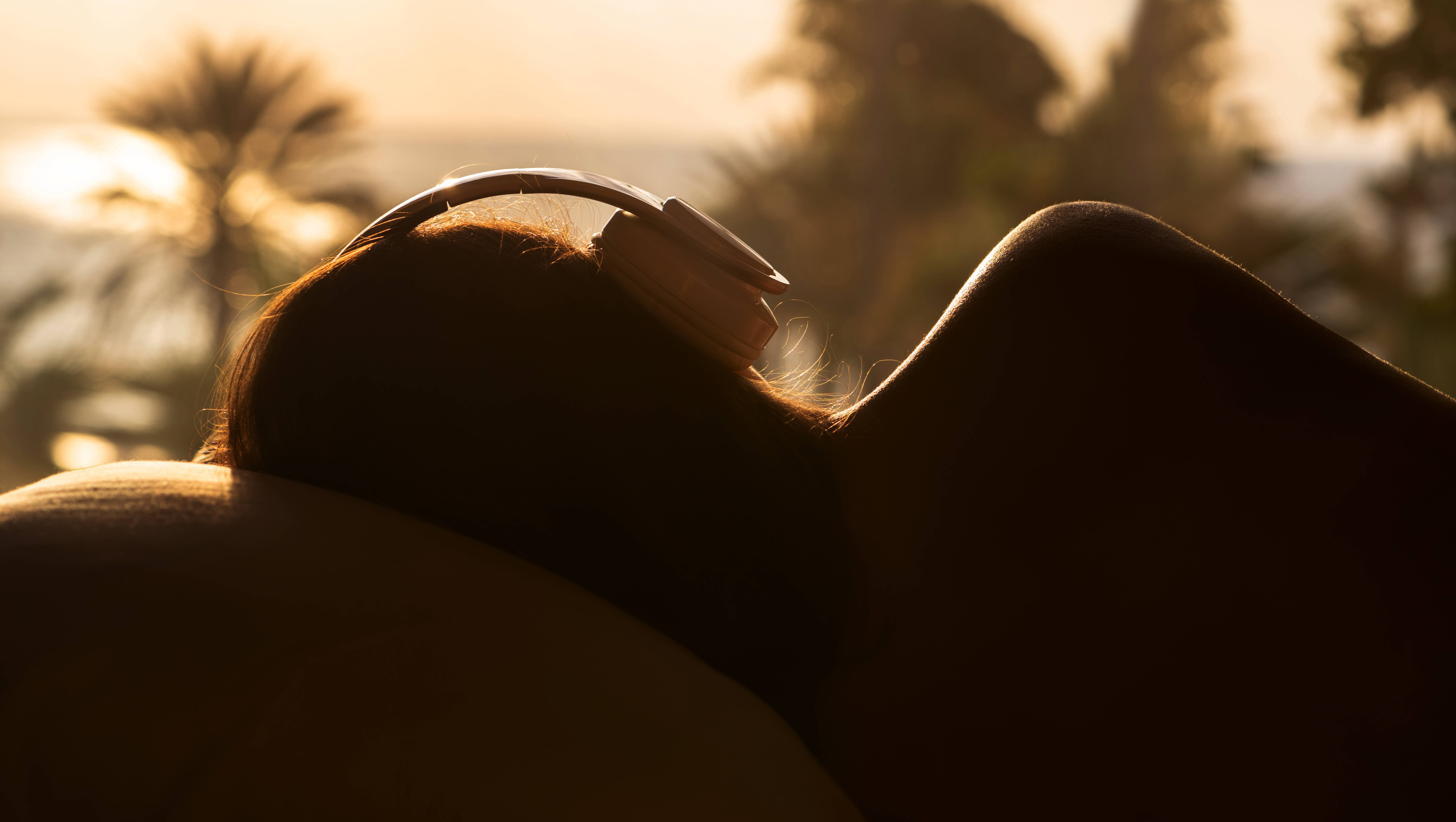
If the noise of the busy ship is still affecting how you sleep then listening to white noise is a great option for drowning out those external sounds. White noise covers all audible frequencies with a hissing or shushing sound, or if you remember it, the static-like sound you’d get on the radio or TV.
You can play the white noise out of your phone, some portable speakers, or by using one of the best noise-canceling headphones depending on how light you wish to travel. It can also be a little uncomfortable to sleep with headphones on, so if you find that hinders sleep, it’s also an option to bring a portable fan with you that creates a sound similar to white noise, although not as effective.
For more on how white noise helps you sleep, read our full guide here.
3. Wear an eye mask
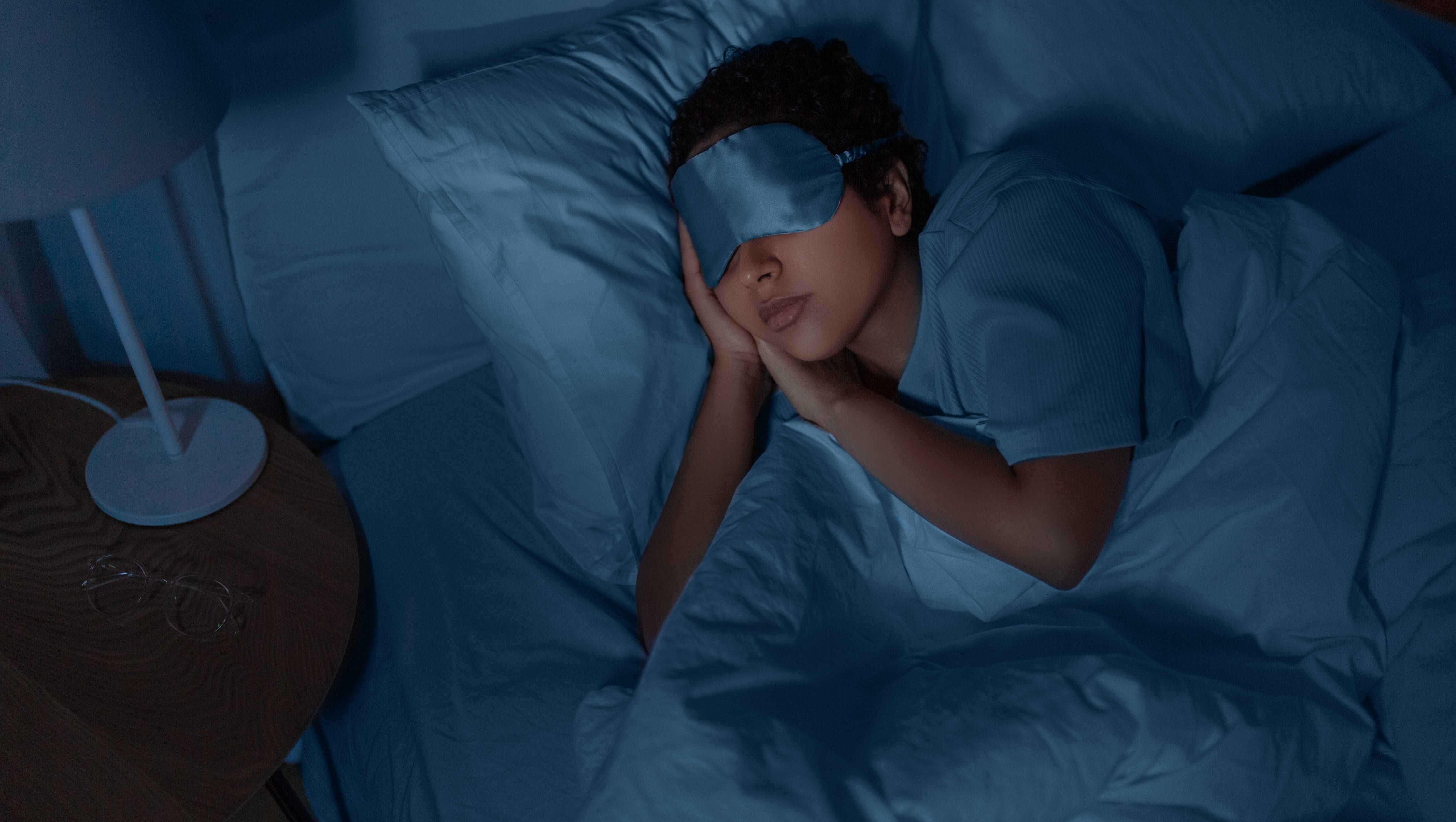
Depending on your cabin location, you may be susceptible to unwanted light bugging you while you’re trying to sleep. For this, the best advice we can give is to wear an eye mask to create a darker environment that, in turn, promotes better sleep.
An eye mask, such as our Sleep Editor’s top pick the Ostrichpillow eye mask, will help encourage the production of melatonin. According to John Hopkins’ sleep expert, Luis F. Buenaver PhD, “Your body produces melatonin naturally. It doesn’t make you sleep, but as melatonin levels rise in the evening it puts you into a state of quiet wakefulness that helps promote sleep.”
Learn more in our article on how eye masks improve reaction times and learning skills.
4. Avoid caffeine
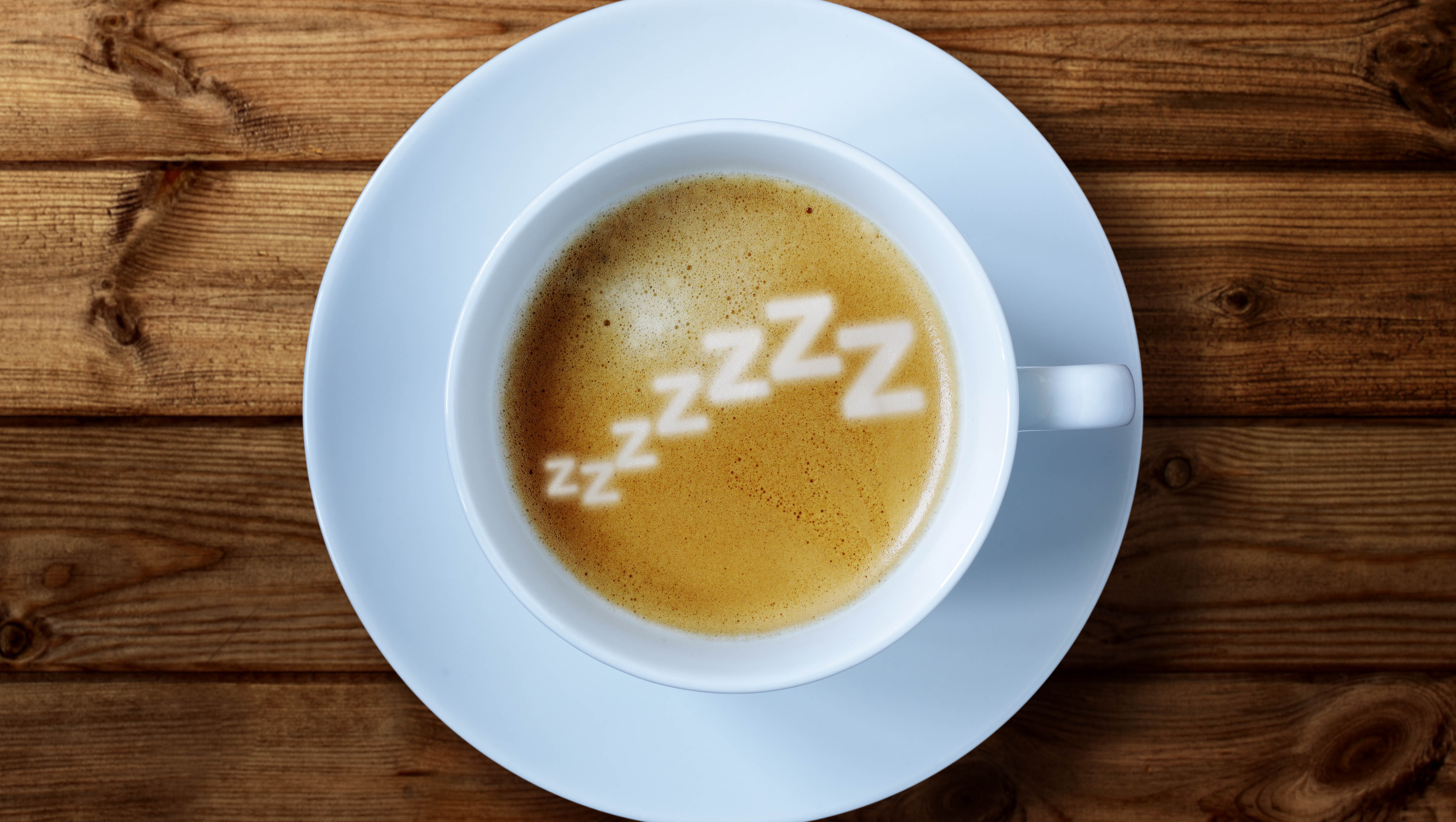
Drinking caffeinated drinks such as coffee and energy drinks may seem like the obvious option for recharging your battery when you’re feeling sleepy, but it’ll have the opposite effect when you’re actively trying to get some shut-eye. The known side effects of drinking caffeine include anxiety, insomnia, and sleep deprivation amongst other things, which creates a vicious cycle of struggling to sleep, feeling the need to drink caffeine to stay awake, and ultimately not being able to sleep again.
So, a top tip for ensuring you’re fully charged and able to enjoy your cruise ship experience to the fullest is to avoid drinking caffeine, or at least avoiding it too close to bedtime. It’s important to note that it can take up to 10 hours for caffeine to clear from your bloodstream, so you’ll want to plan ahead
5. Stay hydrated
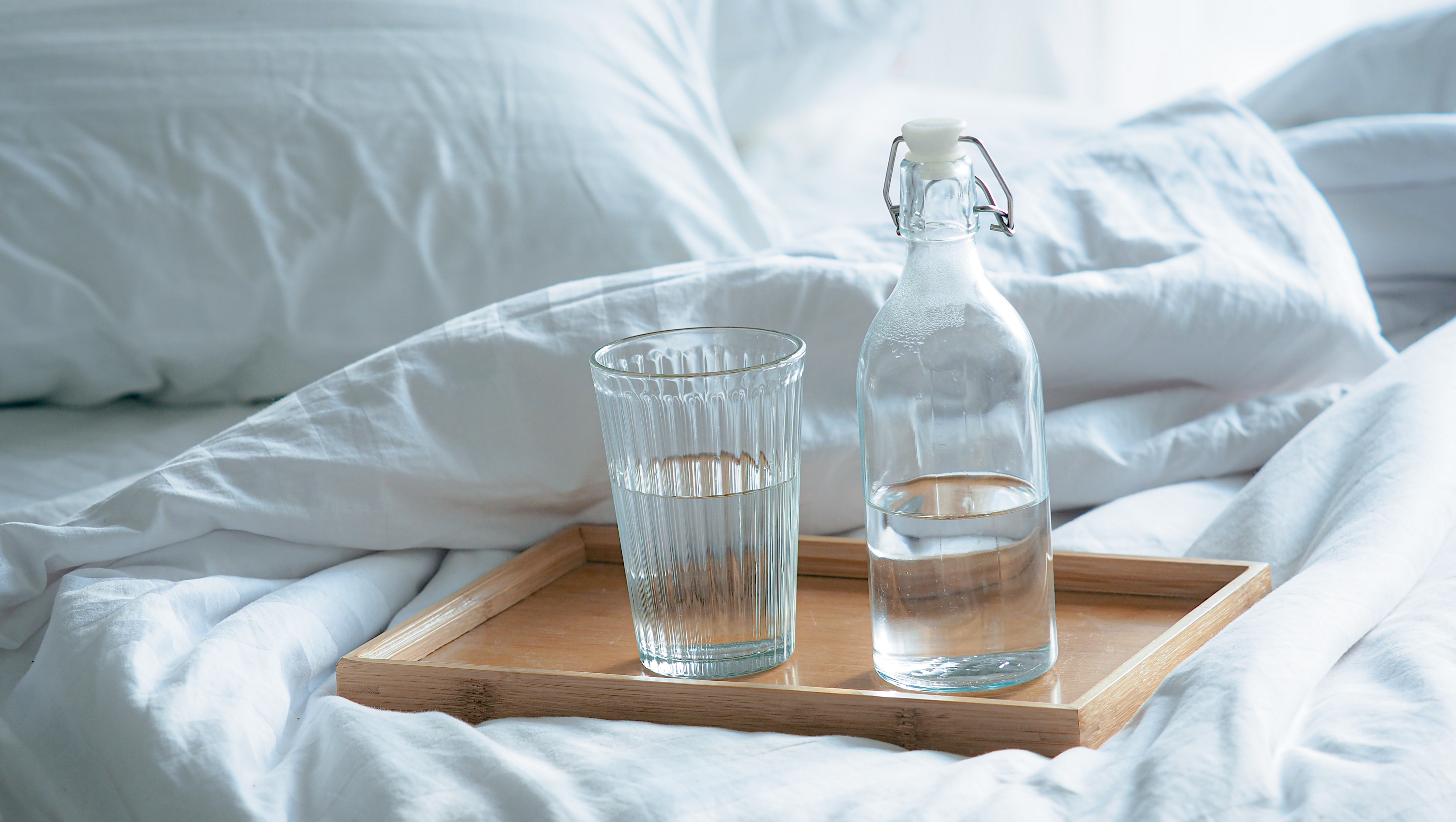
While you should be avoiding caffeinated drinks for better sleep, you should not be avoiding water. Cruise ships use specialized systems to keep the air filtered and fresh when there’s no open windows, but this can cause the air to become dry, which will make you more thirsty.
It’s worth checking if your cruise ship tap water is filtered. While it's still safe to drink if it’s not, it might not taste very nice. Our top tip is to fill up a bottle at the restaurants and keep it with you, whether you pack one with you in your luggage or buy one while aboard the ship is up to you.
6. Find the right temperature
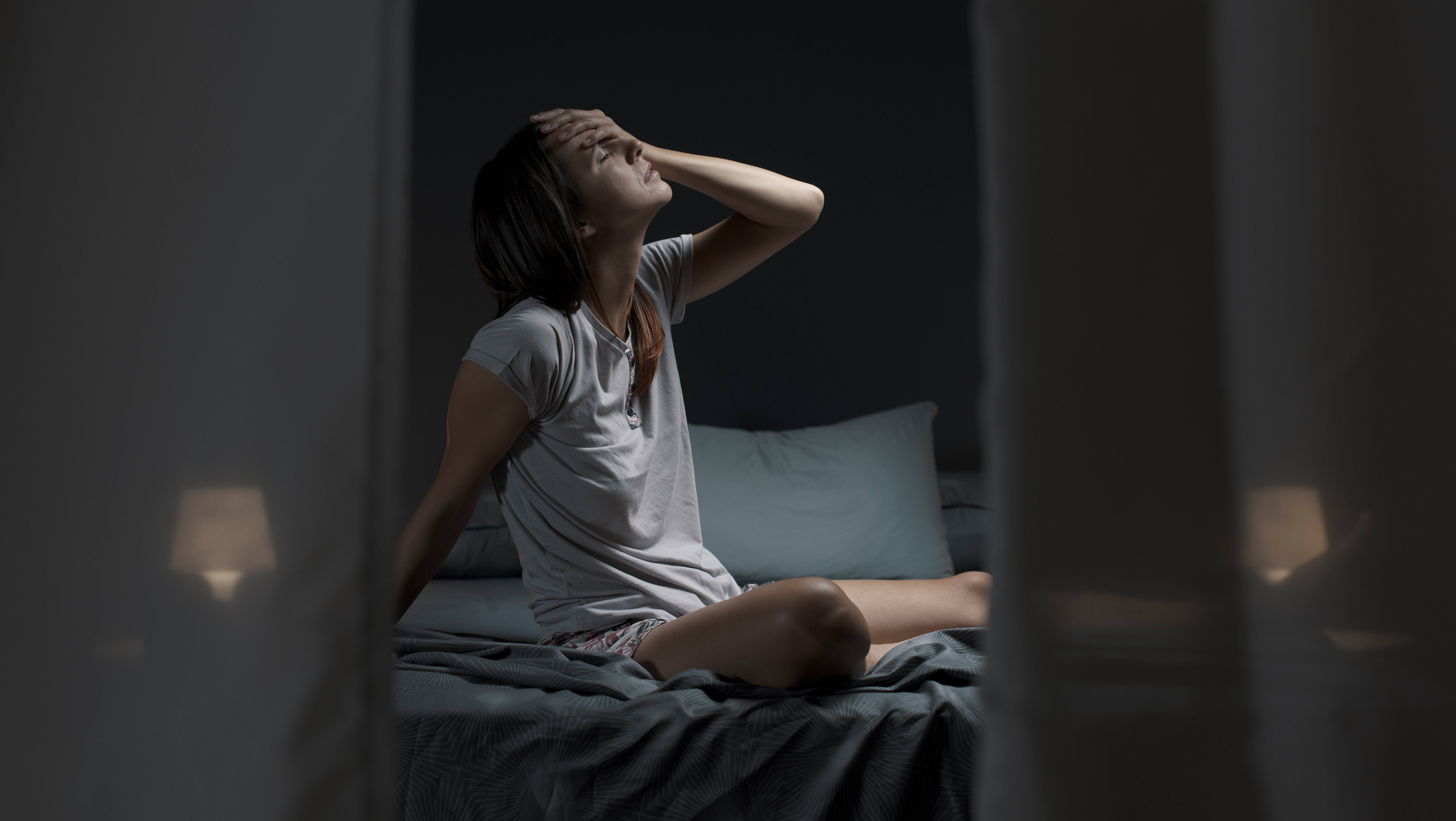
Do you find yourself restless if it’s too hot or too cold at night? Then make sure you set the room thermostat to a temperature that suits you during nighttime hours. According to the Sleep Foundation, to achieve the most comfortable sleep, you’ll want to set it somewhere in the range of 60 to 68 degrees Fahrenheit (15.6 to 20 degrees Celsius), depending on personal preference.
If you suffer through too cold or hot temperatures during your time on the cruise, your nighttime sleep will be poorly affected, which will have a knock-on effect on your energy levels during the day. Learn more in our article how to stay cool to get a better night’s sleep.
7. Try deep breathing and meditation
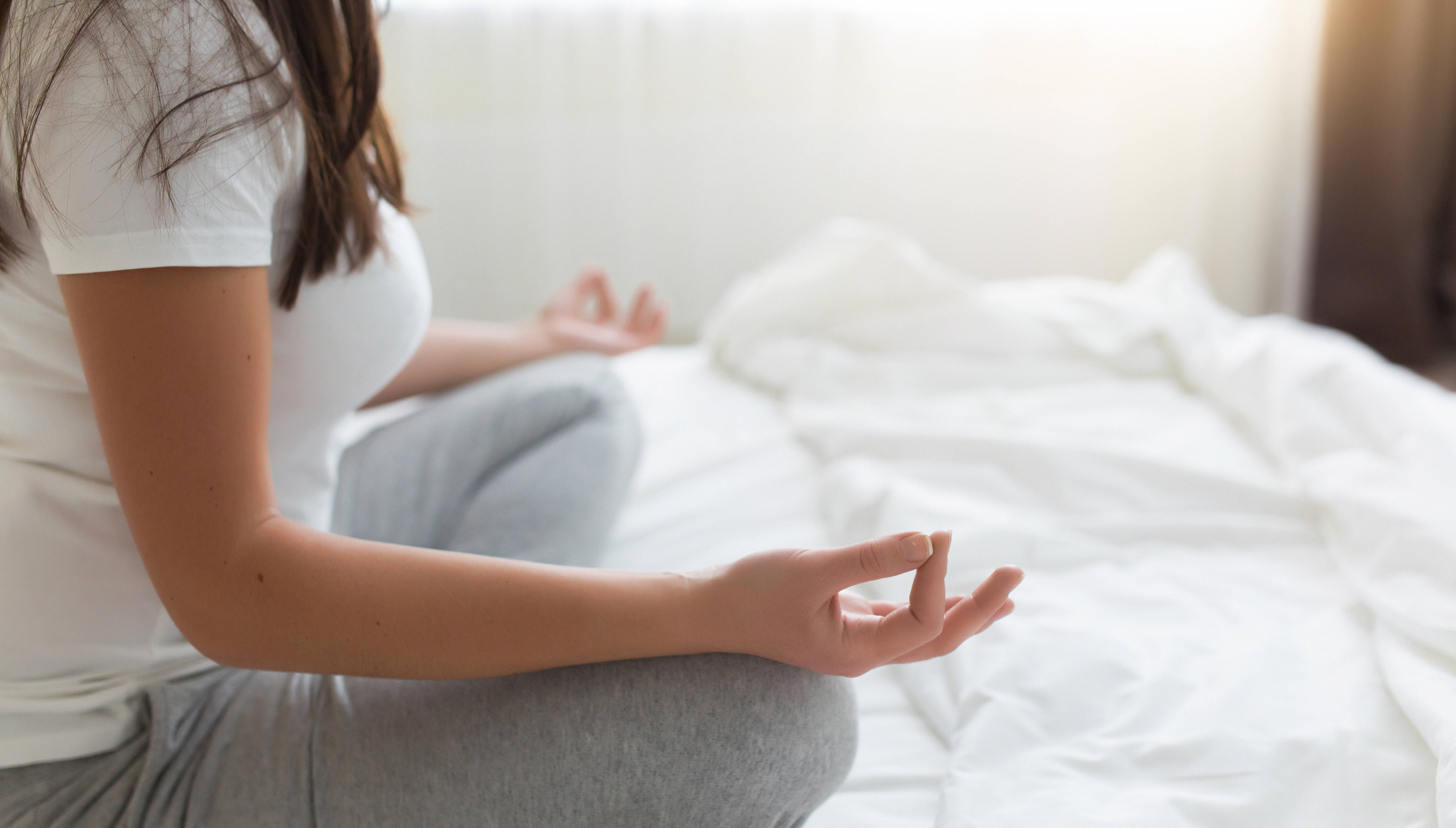
Finally, deep breathing and meditation practices, such as the body scan technique, can prove great ways to calm the mind and body and lull you to a restful sleep. There’s many options online worth exploring to find what’s best for you. You can read how our Sleep Editor felt after trying YouTube’s best deep sleep meditation. Whether it’s an app, YouTube video, or WebMD, it’s worth practicing for a few minutes as you attempt to fall asleep.
Although, Dr. Herbert Benson, director emeritus of the Harvard-affiliated Benson-Henry Institute for Mind Body Medicine recommends it’s more rewarding to practice mindfulness during the day, ideally for 20 minutes. Speaking to Harvard Health, he says, “the idea is to create a reflex to more easily bring forth a sense of relaxation. That way, it’s easier to evoke the relaxation response at night when you can’t sleep.” Either way, time invested in calming the mind will assist in better sleep.







